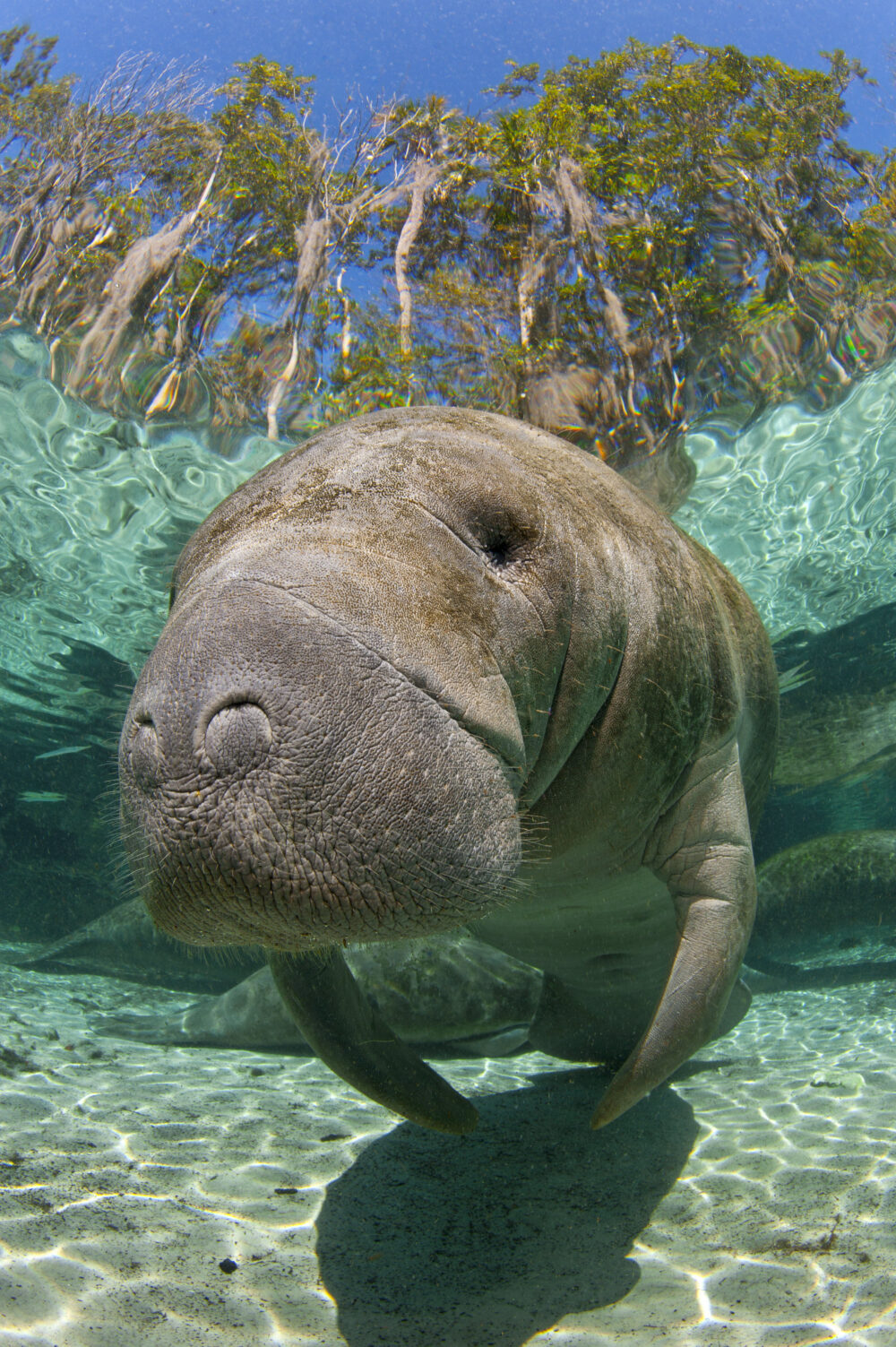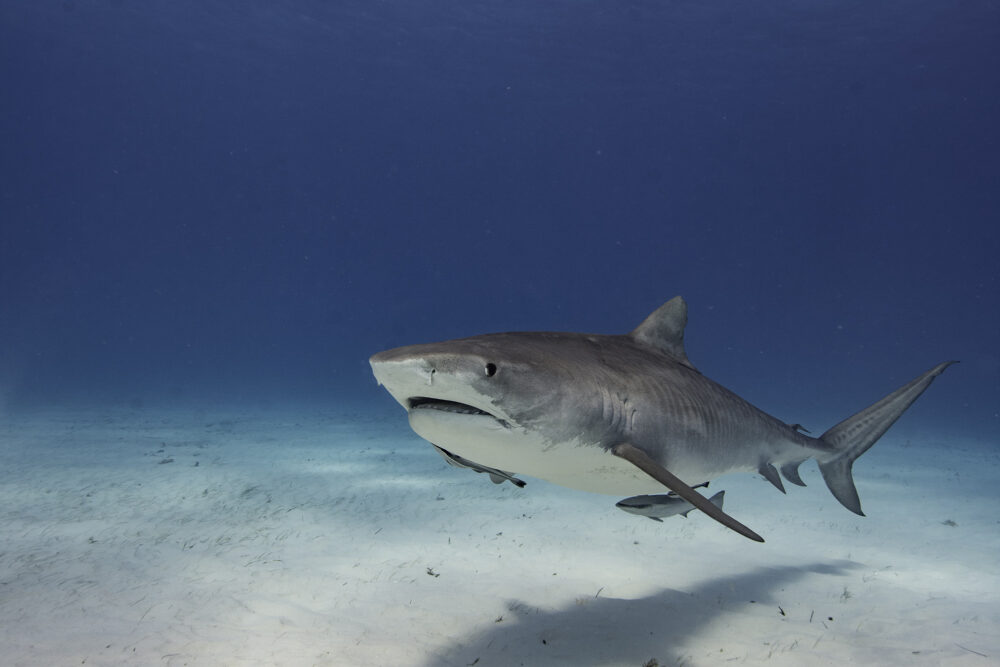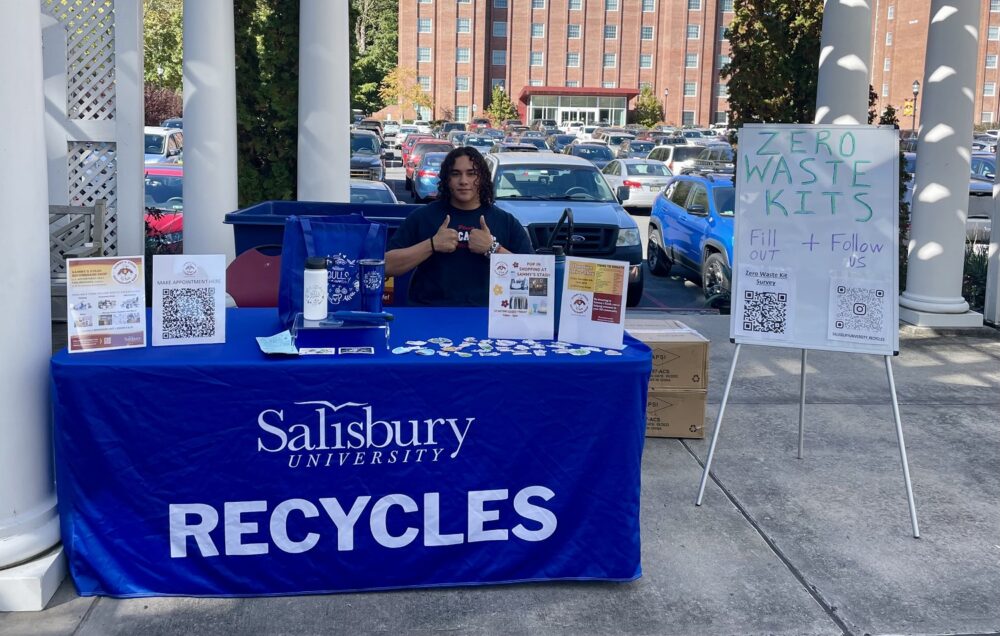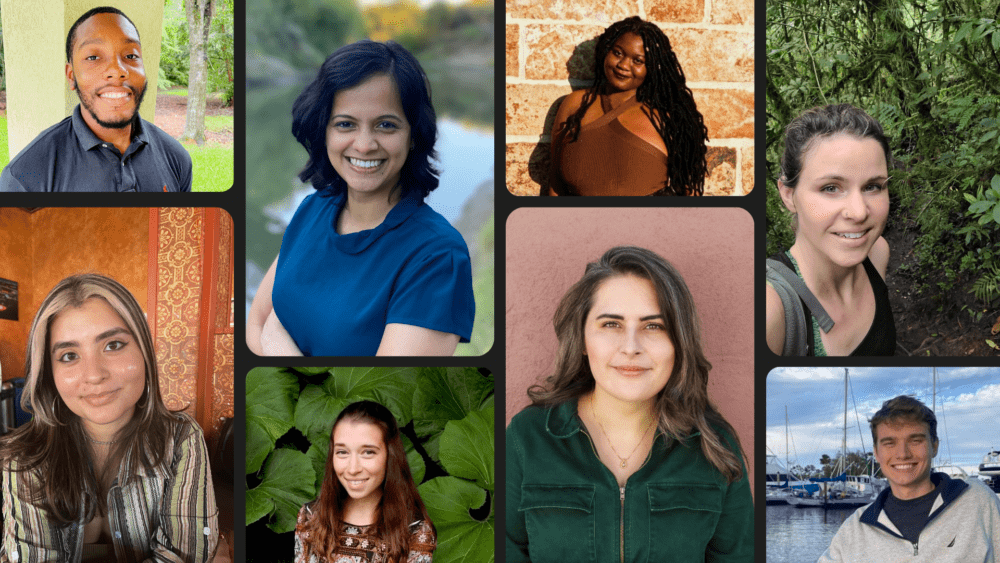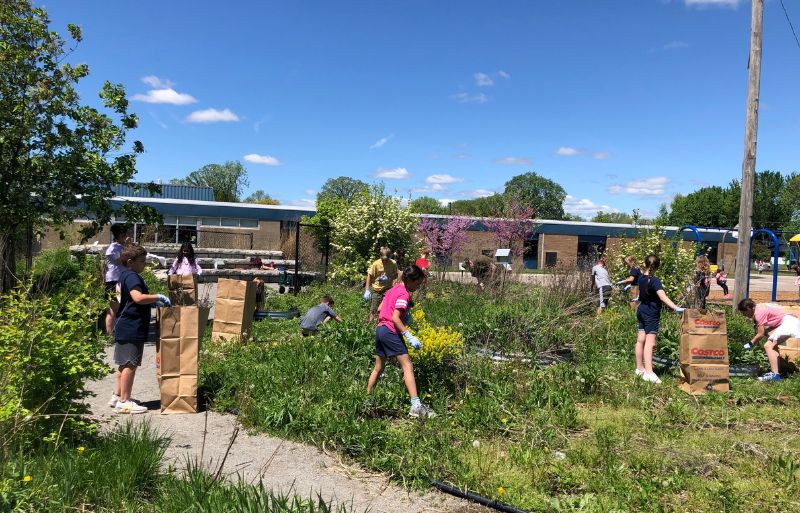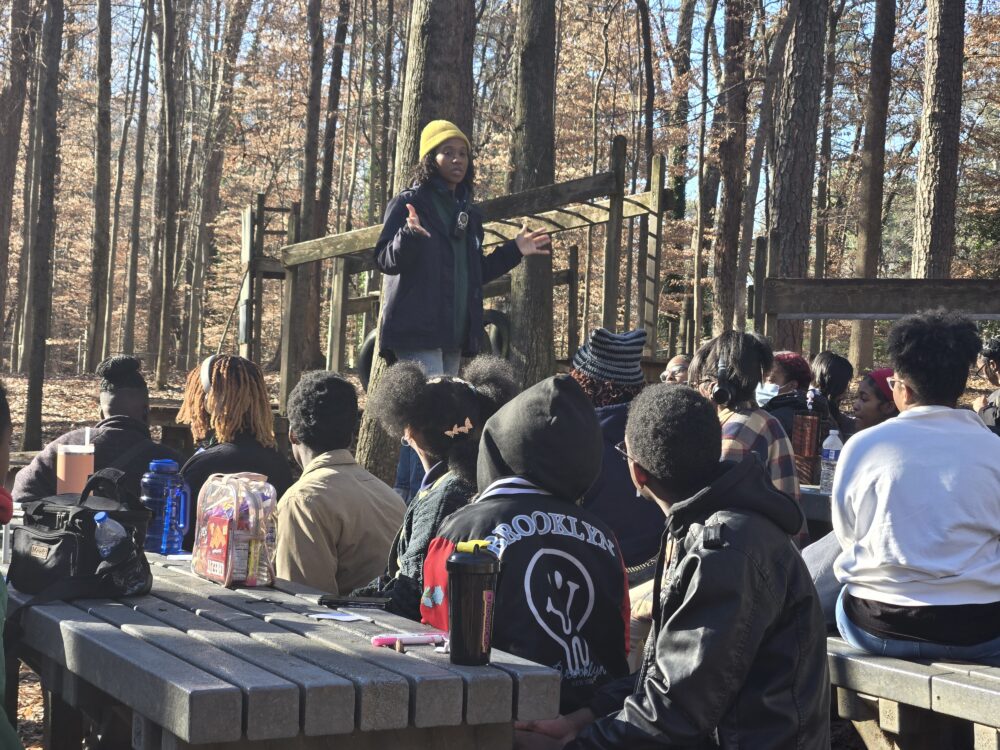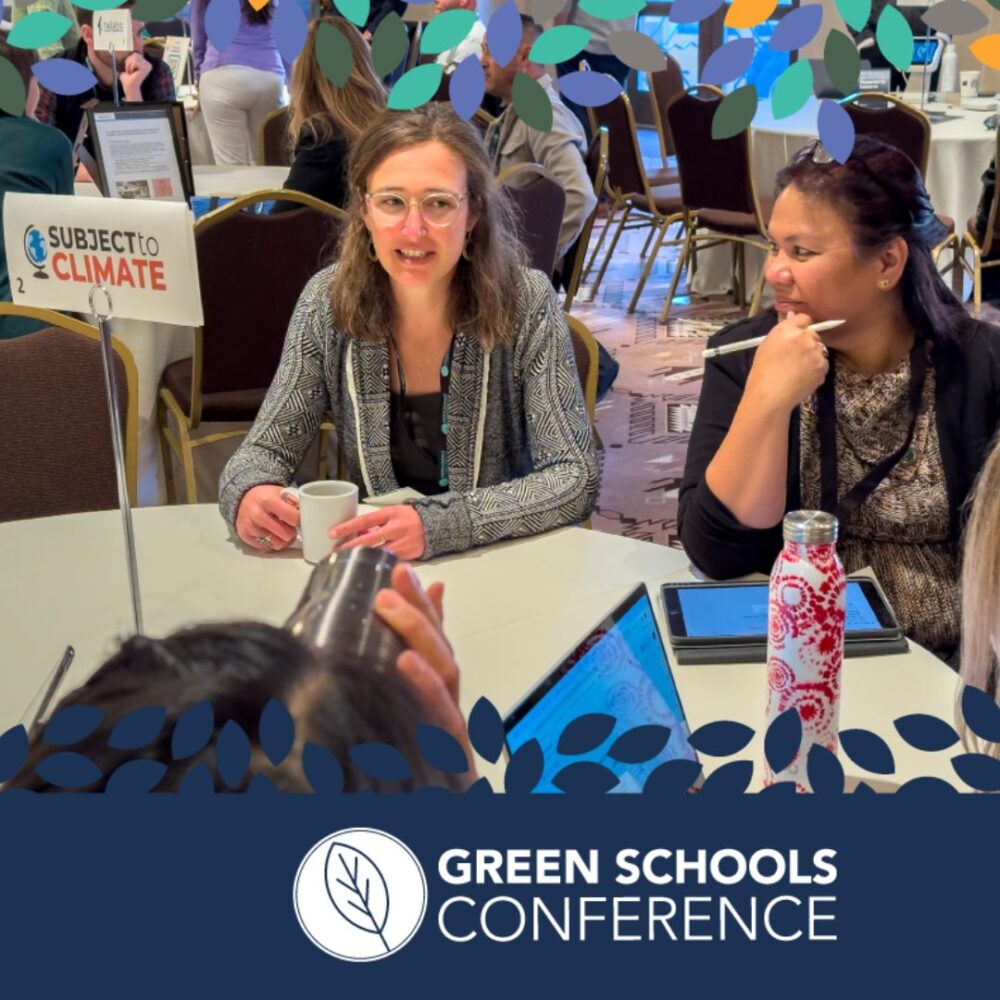We have much more to do and your continued support is needed now more than ever.
EcoGreen Stories on Habitat Restoration to School-Wide Composting and Green Careers
Students are Making Real Change on Their School Campuses!
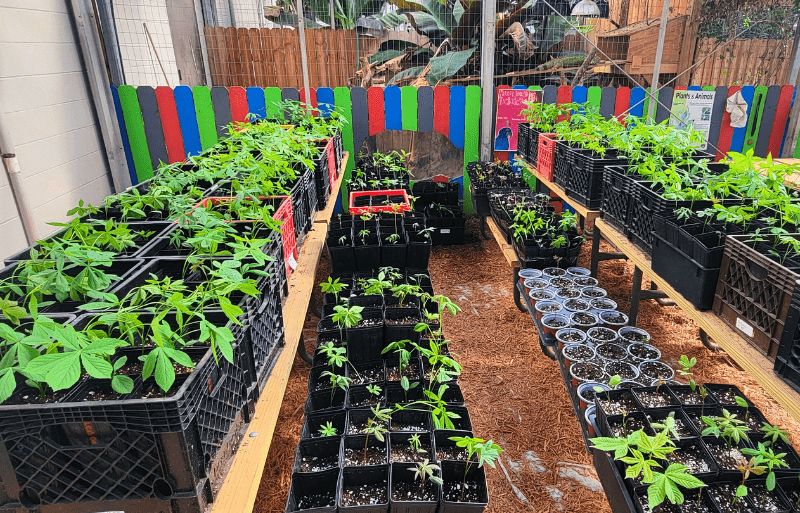
It’s year nine of NWF’s EcoGreen, collaborating with schools across Michigan, Ohio, and beyond to make change on their campuses by providing green STEM and climate education through action-based EcoSchools projects. Thanks to the generous support of General Motors, twenty schools reached 10,700 students with the support of 241 teachers and staff as they implemented recycling, compost systems, rain gardens, habitat restoration, vegetable gardens, and greenways to name a few.
EcoGreen builds a diverse network of educators, students, parents, and GM mentors so that students get the climate and STEM education they need and deserve. Each school receives an action grant and is paired with a mentor, participates in professional development, and utilizes the EcoSchools platform to certify their school. This year four schools earned the highest honor—Green Flag certification. In addition, one school certified at the Gold level, two at the Silver level, and two at the Bronze level.
This school year we expanded to Toledo, Ohio where students from Aerospace and Natural Science Academy of Toledo grew 1000+ trees in their greenhouse that were delivered to the city of Maumee, Hawkins STEM academy and planted behind the school. With the help of EcoGreen and an EPA grant, students restored the school’s Hill Ditch site with 500+ willow and dogwood stakes for erosion control and improved wildlife habitat. Teacher Steve Oswanski states, “Our students come to life when they can be outside learning in nature! Giving them a task or project to help the environment is motivating in ways traditional learn falls short.”
Check out the before and after photos of the Hill Ditch site implementing one of NWF’s strategic pillars, Wildlife Recovery and Habitat Restoration.
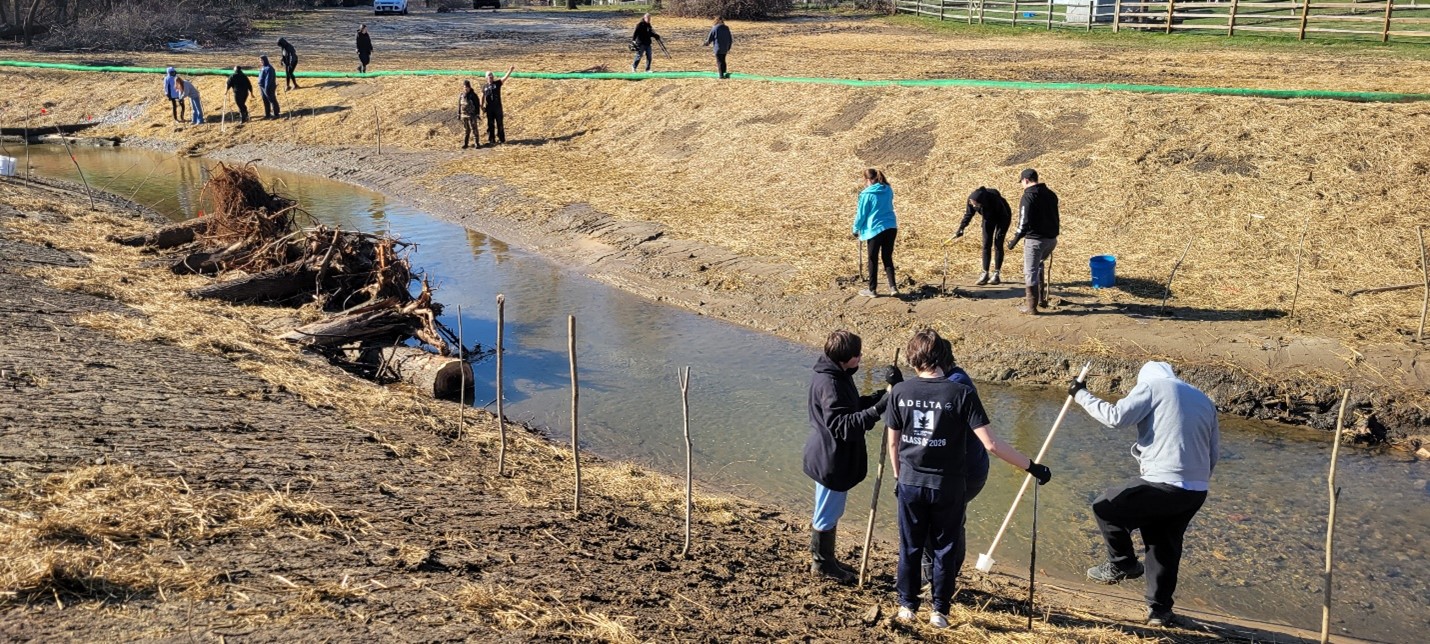
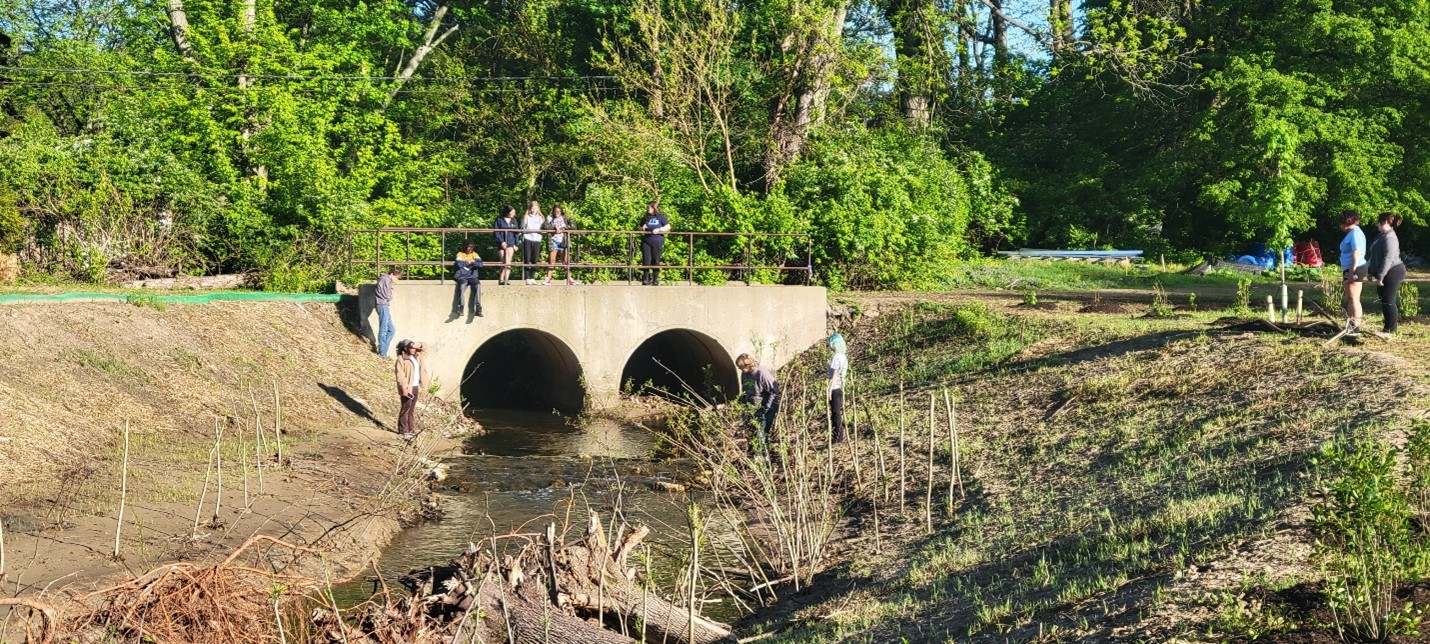
Climate Solutions and Clean Energy
NWF Environmental Justice and Resilient Communities
At Academy of the Americas High School, a Spanish-Immersion school located in SW Detroit, students planned a green career exploration with their English teacher Ms. Degarmo and the support of GM mentor, Andre Houston. GM mentors in different positions at Warren Technical Center presented their career paths to students in English and Spanish.
Their paths ranged from entry level to advanced degree and students were able to ask questions and follow up with GM volunteers one on one. To further their pursuit of studying green career pathways, students planned a trip to the Lake Superior University to speak with professors in STEM and learn about majors in engineering, math, and science.
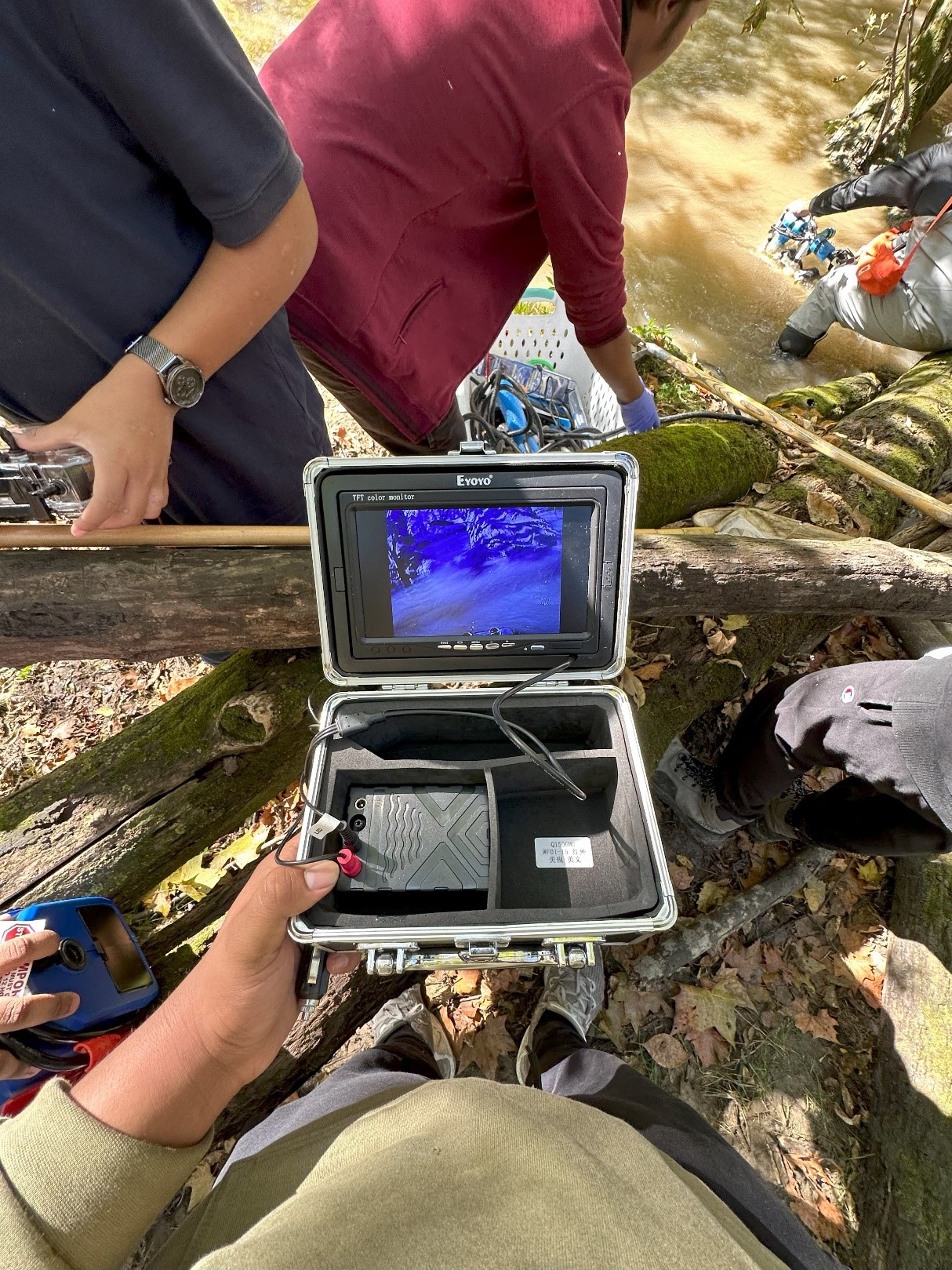
Hamtramck High School (HHS) students, led four ‘clean sweeps’ of the school grounds and surrounding neighborhoods. On average, students picked up 8-10 contractor bags of litter each excursion weighing 25 pounds each, keeping nearly 1,000 pounds of trash off the streets. Ninth grade students at HHS have also been learning about water quality in their science class and its relationship to climate change. They decided to study the water quality alongside their salmon in the classroom project, raising 75 fish to a size suitable to release in the Huron River.
GESU 5th through 8th grade students met weekly as a Green Team to explore ways to reduce cafeteria trash beyond recycling and reducing. Students designed a cafeteria composting system to sort waste. They carry it out to the school’s yard composter and save excess to deliver to local farm animals. Students researched and designed their STEM project in science class connecting it to climate change. Although the meetings were at the school, students also visited the Detroit recycling center and a composting site.
Students reduced 10-15 bags of trash to two after sorting it into recycling and reusables. With the addition of composting, they went down to one garbage bag per lunch shift, saving 1200 pounds of garbage per day from the landfill and removing 362lbs of CO2 from the air.
These projects are just four of twenty that show Eco-Green STEM and climate mitigation projects are multifaceted—showing the benefits of hands-on outdoor learning and socio-emotional development. EcoGreen shows the real impacts that students have on their school communities as they deepen our relationship with the environment. This year our schools collectively diverted 107,485lbs of trash from the landfill, planted 2,200 native plants and trees, planted 625 food crops, and released 75 salmon into the wild, an impressive feat!
To learn more about Eco-Green, head over to our website or the Eco-Schools U.S. YouTube channel where you will find more stories like these and further information on how to get involved.





